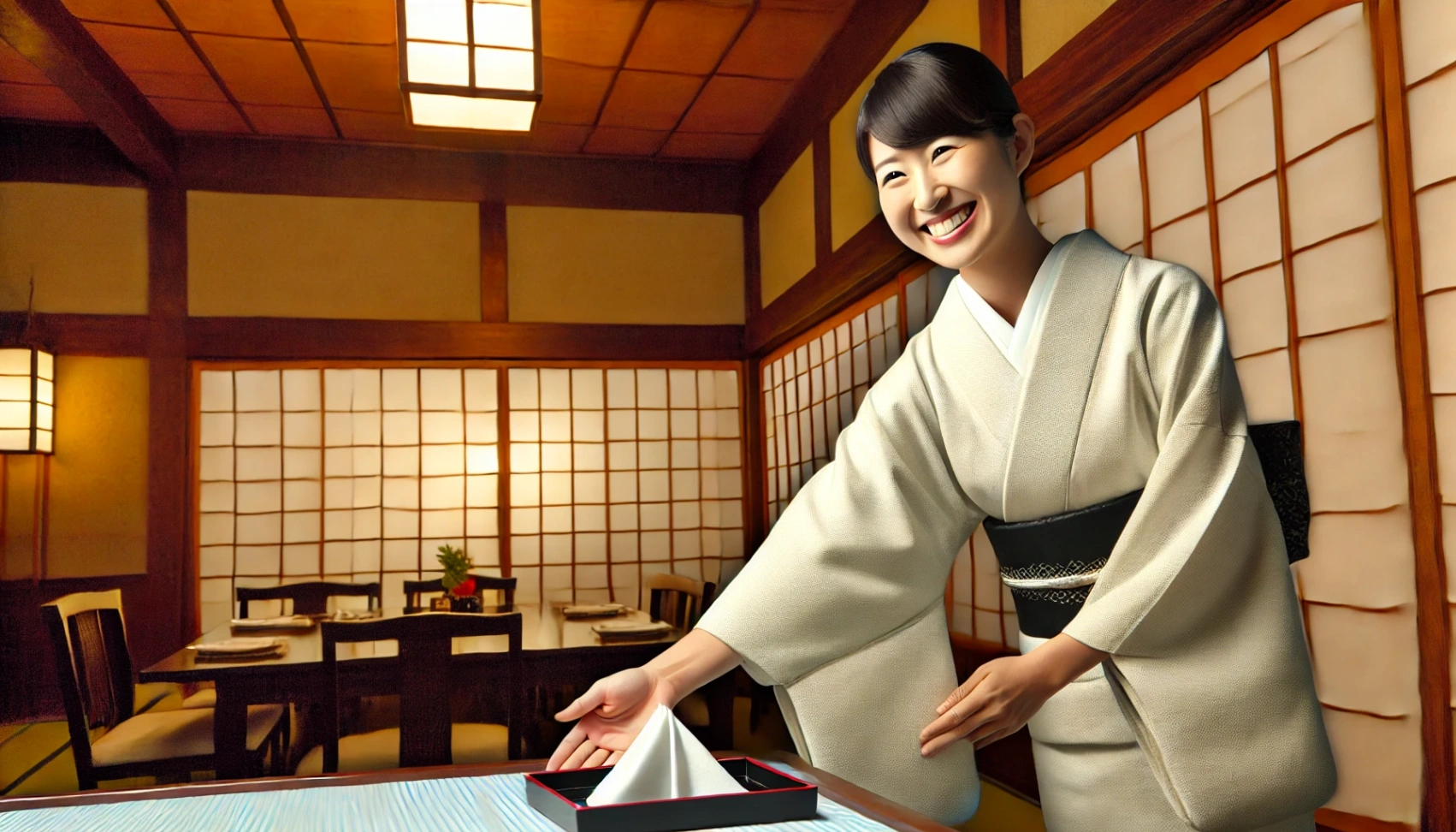Japan’s hospitality industry offers a unique path for newcomers eager to dive into local culture and work life.
Waiter and waitress jobs are a perfect entry point, letting you earn while experiencing Japan firsthand.
Start here to discover what you need to succeed in these roles.
Why Waiting Tables in Japan is Worth It
Working as a waiter or waitress in Japan offers more than a paycheck.
It’s an opportunity to dive into Japanese culture, build valuable skills, and connect with people in a dynamic setting.
- Cultural Immersion: Gain firsthand experience with Japanese customs, etiquette, and language.
- Language Practice: Improve Japanese skills by interacting daily with native speakers.
- Flexible Hours: Many establishments offer shifts that can fit around other commitments or studies.
- Job Availability: The hospitality industry regularly hires, making it easier for newcomers to find work.
- Networking: Meet locals and fellow expats, building connections that can support you in Japan.
- Skill Development: Improve customer service, communication, and time-management skills that are valuable in any job.

What You’ll Need to Succeed
To thrive in a waiter or waitress role, a few essentials will set you up for success. Here’s what you’ll need to stand out and adapt smoothly.
- Legal Work Eligibility: Ensure you have the right visa, like a Working Holiday or Student visa with work permissions.
- Basic Japanese Skills: Familiarity with common phrases and polite language makes a big difference.
- Customer Service Mindset: A friendly, polite attitude goes a long way in Japan’s customer-focused culture.
- Punctuality and Reliability: Showing up on time and consistently helps build trust with employers and coworkers.
- Adaptability: Flexibility in handling different types of customers and situations is vital.
- Attention to Detail: Japanese workplaces value precision, so paying close attention to orders and presentations is essential.
Types of Hospitality Jobs Waiting for You
Japan’s hospitality industry offers a range of job opportunities, each providing unique experiences.
Here are the main types of establishments where you can work as a waitstaff.
- Restaurants: Work in casual dining spots, family-style eateries, or high-end restaurants, serving diverse Japanese and international cuisines.
- Cafés: Serve coffee, tea, and snacks in cozy settings, often with a relaxed pace and friendly customer interactions.
- Izakayas (Japanese Pubs): Experience a lively, fast-paced environment, typically in the evenings, serving food and drinks in a social setting.
- Hotels and Resorts: Join hotel dining services, offering meals to local and international guests in upscale or resort settings.
- Ryokan (Traditional Inns): Work in traditional Japanese inns, where service includes multi-course meals and a more personal guest experience.
- Fast Food Chains: Engage in quicker-paced service, often requiring efficiency and teamwork to handle high customer flow.
How to Land a Job in Japan’s Hospitality Industry
Securing a hospitality job in Japan is easier with the right approach and resources. Here’s a guide to help you find and land the perfect position.
- Online Job Portals: Use sites like GaijinPot, Jobs in Japan, and LinkedIn to find hospitality openings geared toward foreigners.
- Networking and Meetups: Attend local events, expat groups, and industry gatherings to connect with potential employers and peers.
- Job Placement Agencies: Consider agencies specializing in placing foreigners in Japanese hospitality roles.
- Direct Applications: To make a solid first impression, walk into smaller businesses, especially in tourist areas, and apply in person.
- Language Schools: Many language schools in Japan have job boards or partnerships to help students find part-time work.
- Social Media Groups: Join expat or job-seeker groups on platforms like Facebook for job listings and insider tips.
What to Expect in Pay and Perks
In the hospitality industry, pay rates and perks vary by establishment and location.
Here’s a quick breakdown of what to look forward to regarding earnings and benefits.
- Average Pay: Hourly wages vary but generally range from ¥900 to ¥1,300, depending on experience and location.
- Bonuses: Some businesses offer seasonal or performance-based bonuses, especially during peak seasons.
- Meals: Many establishments provide free or discounted meals during shifts.
- Transportation Allowance: It’s common for employers to cover part or all of your commuting costs.
- Uniforms: Most places provide uniforms, saving you the cost of work attire.
- Employee Discounts: You may receive discounts on food or services at the establishment when not working.

Your Step-by-Step Application Process
Applying for a hospitality job in Japan requires a few straightforward steps to ensure you’re well-prepared and stand out from employers.
Here’s a step-by-step guide to help you navigate the process.
- Prepare Your Resume (Rirekisho): Craft a Japanese-style resume that includes a professional photo and a clear job history.
- Gather Required Documents: Ensure you have the necessary paperwork, such as a valid visa, residence card, and, if needed, work permit.
- Search for Jobs: Use online portals, networking events, or agencies to find job openings that fit your skills and interests.
- Apply and Follow Up: Submit applications online or in person, and follow up politely to show interest.
- Prepare for Interviews: Practice common interview questions, be punctual, and present yourself professionally.
- Attend Onboarding: Once hired, participate in any training or orientation to learn the specific service standards and job expectations.
Salaries and Compensation
Understanding salary ranges and additional compensation can help you set realistic expectations when working as a waitstaff.
Here’s a look at typical earnings and other benefits you might receive.
- Hourly Wage: Pay ranges from ¥900 to ¥1,500 per hour, with Tokyo typically offering ¥1,100–¥1,500.
- Overtime Pay: By law, overtime hours are compensated at 1.25 times the regular hourly rate.
- Night Shift Bonus: For shifts between 10 PM and 5 AM, expect an additional 25% added to your hourly wage.
- Holiday Pay: Many employers offer higher rates (often 1.35 times the regular pay) for working on public holidays.
- Transportation Reimbursement: Commonly, employers cover commuting costs up to around ¥10,000–¥20,000 per month.
- Meals During Shifts: Many restaurants provide free or discounted meals, saving you around ¥500–¥1,000 per shift.
- Housing Stipend: Some employers, especially outside major cities, may provide a stipend or subsidized accommodation.
Understanding Japan’s Work Culture and Etiquette
Understanding Japan’s work culture is vital to success in hospitality. Respect, attention to detail, and teamwork are highly valued. Here are the essentials.
- Punctuality: Arriving on time shows respect and reliability; being early is encouraged.
- Politeness and Respect: Use polite language and formal expressions, especially with superiors.
- Hierarchy Awareness: Respect workplace hierarchy, showing deference to senior staff and managers.
- Attention to Detail: Precision in tasks, from order accuracy to table setup, is highly valued.
- Dress Code and Grooming: Maintain a clean, professional appearance following strict guidelines.
Wrap-Up: Start Your Hospitality Journey in Japan
Starting a hospitality job in Japan is a rewarding way to experience the culture, build new skills, and grow professionally.
With the proper preparation, you’ll be set to succeed and make the most of this unique opportunity.
Ready to begin? Take the first step and start your job search today!












